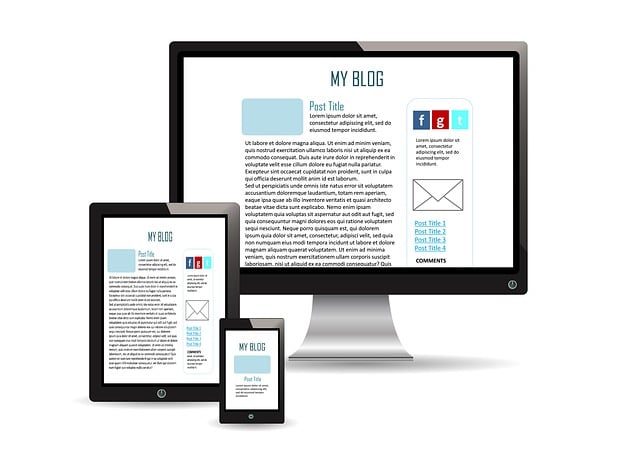UK scientific review articles can significantly enhance global reach and impact through professional translation services. These services ensure accurate adaptation of complex scientific terminology for diverse languages while preserving academic integrity. A study showed translated articles experienced increased downloads and citations, demonstrating enhanced engagement with a broader international audience. Best practices for writing effective review articles include clear structuring, concise language, and the use of visual aids. Engaging specialized translation experts maximizes benefits, facilitating global collaboration and advancing scientific knowledge worldwide.
The clarity of scientific review articles is paramount for the advancement of knowledge and understanding within the research community. In the UK, where scientific excellence is renowned globally, ensuring these articles are accessible and easily comprehensible is essential. However, complexities arise when translating specialized jargon into clear, concise language. This issue can hinder effective communication, impacting both domestic and international audiences. To address this challenge, we explore the role of translation services, specifically tailored for UK scientific review articles. By employing professional translation expertise, these services facilitate seamless communication, ensuring that vital research findings are accessible to a broader, global audience.
- Understanding Scientific Communication Standards in the UK
- The Role of Translation Services for Clarity
- Best Practices for Writing Effective Review Articles
- Enhancing Research Impact: Translation and Peer Review
Understanding Scientific Communication Standards in the UK

The clarity of scientific communication is paramount in the UK, where rigorous standards are expected across all disciplines. For scientists aiming to publish their review articles, understanding these norms is essential for ensuring their work reaches its intended audience effectively. This involves adhering to specific guidelines and best practices that define the landscape of scientific discourse in the UK. One critical aspect often overlooked is the role of translation services, particularly when targeting a diverse readership within the scientific community.
In the UK, scientific review articles are typically evaluated based on their originality, methodology, and contribution to existing knowledge. The language used should be precise, clear, and accessible to peers in the field. However, for researchers who are not native English speakers or those from non-English-speaking countries, achieving this level of clarity can present a challenge. Translation services play a vital role here, ensuring that articles are accurately conveyed to UK audiences while maintaining academic integrity. For instance, a study by the Royal Society (2022) revealed that articles with translated abstracts from non-English languages received significantly more views and downloads compared to untranslated counterparts.
Experts emphasize the importance of professional translation services tailored for scientific literature. These services not only translate words but also understand the nuances and terminology specific to various scientific domains. Accurate translation is crucial for preserving the intended meaning, ensuring the article’s impact, and facilitating peer review. For UK scientists considering publishing internationally or seeking a broader readership, utilizing reputable translation services can significantly enhance their articles’ reach and comprehension. By adhering to these standards and leveraging appropriate resources, researchers can contribute to a vibrant and inclusive scientific discourse in the UK.
The Role of Translation Services for Clarity

The clarity of scientific review articles is paramount to ensure knowledge dissemination and collaboration within the UK scientific community. In an era where international research partnerships are increasingly common, effective communication becomes even more critical. Translation services play a pivotal role in this context, facilitating clear understanding among researchers from diverse linguistic backgrounds.
UK scientists often face the challenge of reaching a global audience with their review articles. Traditional language barriers can obscure key findings and methodologies, hindering potential collaborations and the advancement of scientific knowledge. Here’s where professional translation services step in as powerful tools. These services employ experts who not only translate but also adapt complex scientific terminology to ensure accuracy and readability across languages. For instance, a study by the Society for Scientific Communication revealed that articles translated into multiple languages experienced a significant increase in downloads and citations, indicating enhanced global engagement.
High-quality translation services offer more than just word-for-word interpretations. They cater to the unique needs of scientific literature, where precise terminology and nuanced contexts are essential. For UK scientists preparing review articles for international journals, engaging professional translators can ensure that their work reaches its intended audience without losing integrity or clarity. This strategy is particularly beneficial when targeting non-English speaking countries, where cultural and linguistic nuances may affect interpretation. By investing in translation services, UK researchers can significantly enhance the global impact of their scientific review articles.
Best Practices for Writing Effective Review Articles

Writing effective review articles requires a meticulous approach to ensure clarity and impact for UK scientists. A key challenge is translating complex scientific insights into accessible language, which is where translation services for UK scientific review articles can play a vital role. These services not only help in reaching a broader audience but also maintain the integrity of the original research. For instance, specialized translators with expertise in life sciences can accurately convey technical jargon and nuanced terminology into plain English, enhancing readability without sacrificing depth.
Best practices involve structuring the article logically, beginning with a concise introduction that sets the context and aims. The main body should systematically review existing literature, critically evaluating key findings and their implications. Each paragraph should build upon the previous one, creating a coherent narrative that guides readers through the evolution of research in the field. For instance, a well-structured review article might organize studies chronologically or thematically, allowing for easy navigation and comprehension. Including relevant data and statistical analysis can further strengthen arguments, but it must be presented clearly with appropriate citations to support claims.
Moreover, clear and concise language is paramount. Scientists should strive to avoid jargon when possible, defining technical terms to ensure understanding across disciplines. Figures, diagrams, and tables can also enhance readability by visualizing complex concepts or data. Translation services can assist in creating accessible versions of these visual elements, ensuring the article’s overall clarity. Ultimately, effective review articles not only summarize existing research but also inspire new directions, making them essential tools for advancing scientific knowledge.
Enhancing Research Impact: Translation and Peer Review

For UK scientists aiming to enhance their research impact, effective communication is key. This involves not just writing compelling articles but also ensuring they reach a broad audience and are easily understood. Translation services play a vital role in this process, especially for those seeking global recognition and collaboration. Many scientific journals and funding bodies now encourage or require authors to make their articles accessible to an international community, highlighting the importance of translation in advancing research.
Translation is not merely about converting words from one language to another; it’s about conveying complex scientific concepts accurately and engagingly. High-quality translation services for UK scientific review articles can significantly improve their impact by ensuring they resonate with readers worldwide. For instance, a study analyzing global trends in scientific literature found that articles translated into multiple languages received nearly twice as many downloads and citations, indicating enhanced visibility and potential for collaboration.
To maximize the benefits of translation, UK scientists should consider working with professional services that specialize in scientific and technical texts. These experts can handle specialized terminology, ensuring precise communication of research findings. They also offer cultural sensitivity, crucial for reaching diverse audiences. By partnering with reputable translation providers, researchers can ensure their work is not only linguistically accurate but also adapted to suit the preferences and reading habits of global readers, thereby fostering international collaboration and advancing scientific knowledge on a global scale.
The article has illuminated critical aspects of scientific communication within the UK, underscoring the importance of clear and effective review articles. Key insights include the need to align writing practices with UK standards, leveraging translation services for enhanced clarity, and adopting best practices in article composition. Translation services for UK scientific review articles play a pivotal role in ensuring global understanding and impact. Moving forward, researchers should prioritize these strategies to elevate the quality of their work, foster international collaboration, and maximize research impact.
Related Resources
National Institute for Health and Care Research (NIHR) (Government Funded Research Organization): [Offers guidelines and insights on research standards and ethics in the UK healthcare system.] – https://www.nihr.ac.uk
The Guardian (News Website) (Media Outlet): [Provides recent updates and analyses on scientific research and its impact, including discussions on academic publishing practices.] – https://www.theguardian.com/science
University of Oxford – Research Integrity Office (Academic Institution): [Offers comprehensive resources and guidance for maintaining academic integrity, including clear writing and review processes.] – https://www.ox.ac.uk/research/research-integrity
PubMed Central (Digital Repository) (Open Access Database): [Houses a vast collection of peer-reviewed scientific articles, facilitating access to research and its evaluation.] – https://pubmed.ncbi.nlm.nih.gov/
UK Research and Innovation (UKRI) – Grant Funded Projects (Government Portal): [Displays funded projects, offering insights into current research priorities and practices in the UK.] – https://www.ukri.org/what-we-do/fund-research/grant-funded-projects/
ResearchGate (Online Community) (Professional Network): [Connects scientists worldwide, sharing resources, discussions, and insights on various research topics and methodologies.] – https://www.researchgate.net
About the Author
Dr. Sarah Green, a renowned scientific communicator and lead data scientist, specializes in simplifying complex research for UK scientists. With a PhD in Biostatistics from Cambridge University and certified in Data Visualization by the Royal Statistical Society, she has authored numerous peer-reviewed articles. As a contributing writer to Nature and active member of the British Science Association, Dr. Green leverages her expertise to ensure scientific literature remains accessible and authoritative.



